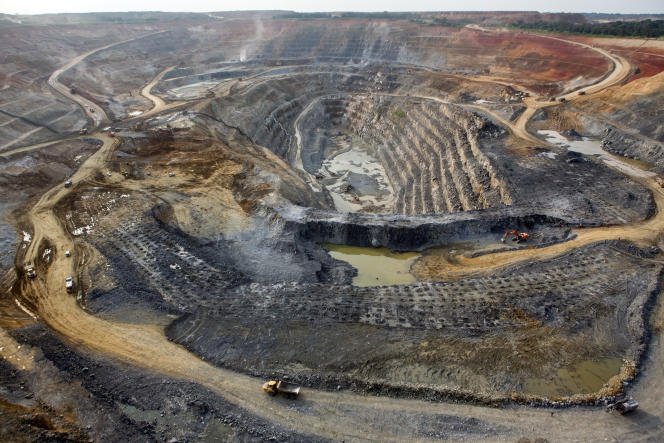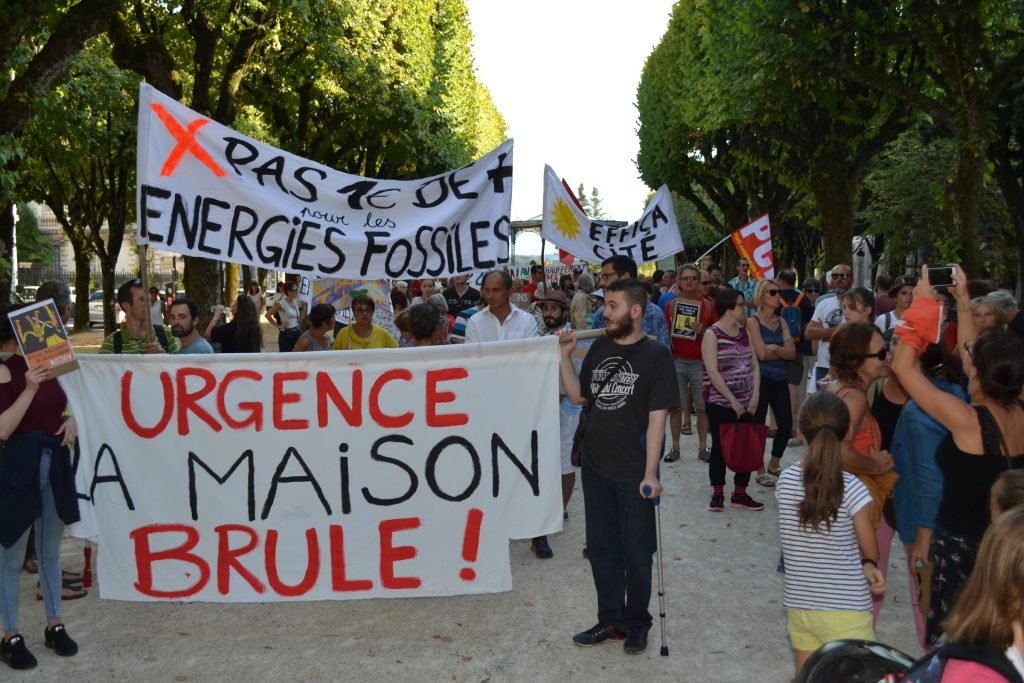Most electric car batteries weigh between 186 kg for a Fiat 500-E, 326 kg for a Renault Zoé, and a little over 400 kg for a Tesla. But there are also heavier models, like the Audi e-Tron with its 700 kg battery.
According to calculations made by Patrick d’Hugues and his colleagues at the Office of Geological and Mining Research, an average of 21 tons of ore is mined per medium-sized electric vehicle battery (around 300 kg).
This type of battery is composed of lithium, cobalt and often nickel on its positive electrode, and graphite on its negative electrode.
To obtain a few kilos of these rare metals, several tons of earth and minerals must be extracted. “The material has to be found in the earth’s crust. Lithium, cobalt, etc. are inside something. To access it, you have to blow up the raw material, the soil, the earth, all kinds of metals,” explains Professor Karine Samuel.
The problem is that this mining is not without consequences for the environment.

The problem is that this mining is not without consequences for the environment.
Lithium, which is present in large quantities on French soil, is a key element in the manufacture of electric car batteries.
These are supposed to be the only new vehicles to be sold in the European Union from 2035.
In France, “we don’t have oil, but we have lithium.” Emmanuel Macron brilliantly handles references to his predecessors. On October 26, 2022, in an interview with France 2, the President of the Republic brought back to life the famous phrase uttered by Valéry Giscard d’Estaing, in the aftermath of the 1973 oil shock.
Emmanuel Macron, Interview télévisé sur France 2 en 2022
Lithium is found dispersed in rocks, clay soils as well as in brines (mixture of water and salts). It is therefore necessary to go through extraction and various chemical treatments to obtain the finished product. A process that is slow and energy consuming. And it requires large quantities of water, a resource that is becoming increasingly scarce.
We don’t know how to extract material from the subsoil in a sustainable and clean way

Face à l’argument d’une souveraineté énergétique via le lithium, des inquiétudes persistent sur les conditions d’extraction du minerai.
“We don’t know how to extract material from the subsoil in a clean way, because a mine always implies next to it a big chemical transformation plant, which leads to an exploitation, and eventually to a pollution, of water and important quantities of waste that we don’t know how to manage”, said Antoine Gatet, vice-president of France Nature Environnement (FNE).
Aureole by the government, the electric car is presented as the virtuous alternative to gasoline vehicles. However, on October 12, the ADEME (Agency for the Environment and Energy Management) established in a report that only light electric cars with low-power batteries are less polluting than thermal models.
Barbara Pompili, the Minister of Ecological Transition, insists on the need to extract lithium in France. It is not healthy to pretend that all this happens without social or environmental damage.
If on paper, the extraction of lithium in France would make it possible to limit the emissions of greenhouse gases, however the environmentalists themselves dispute many of these projects.
In Bolivia, the country that holds the world’s largest reserves, the way white gold is produced – very water-intensive – has worsened the drought. In China, the production sites of these minerals have disastrous consequences on the surrounding villages, according to a report in Le Monde published in 2012, some are even nicknamed “cancer villages.”

In fact, the average western ecologist wants electric cars, to safeguard the “future” of his children, at the expense of the “present” of the children of Congo, China or Bolivia.
He only wants to relocate pollution away from home.
Another major problem is the exploitation of children in the cobalt mines.
“During a recent visit to the mining town of Kolwezi (southern DRC), one of our envoys noted a significant increase in small-scale cobalt mining last year, as cobalt prices rose sharply in response to increased consumer demand,” wrote The NGO Amnesty International in 2018.
“Armed with a makeshift sieve, a dozen ragged children wade through a muddy puddle. “There’s nothing in that bag, I’m going back to the mine,” exclaims 11-year-old Domi. The boy reappears, loaded with about 20 kilos of rubble. Small nuggets of cobalt soon appear in the sieve, bringing wide smiles to young faces: the children will not go home empty-handed. “When I find something, I take a little bit of cassava home”, rejoices Bonheur, 6 years old, member of the little band of “diggers”!

Dorcas Musinga, 51, a mother raising her children in a slum in downtown Kolwezi, says, “All my children come to dig with me. Behind her, a group of children hastily dig into the slope of the ochre-colored embankment. “It is a very dangerous activity, because the slopes of the slag heap can collapse at any moment. Children frequently die in landslides,” Dorcas murmurs.
For Donat Kambola, a human rights lawyer based in Kolwezi, “There is not a single Congolese mine that complies with the mining code. The state as such does not exist in the DRC. It is a bunch of individuals who take hostage the institutions to help themselves, and this endemic corruption prevents the law from being applied,” the activist laments.
Yet business continues. At the bottom of one of Kolwezi’s main industrial mines, located in the center of town, a loud bang sounds. “They are expanding the mine with dynamite. Soon we will be expropriated,” concludes Monga Chadrak, his eyes glazed over. This is how the mines of Lualaba work, where people die from the sound of explosives for a few grams of cobalt.
